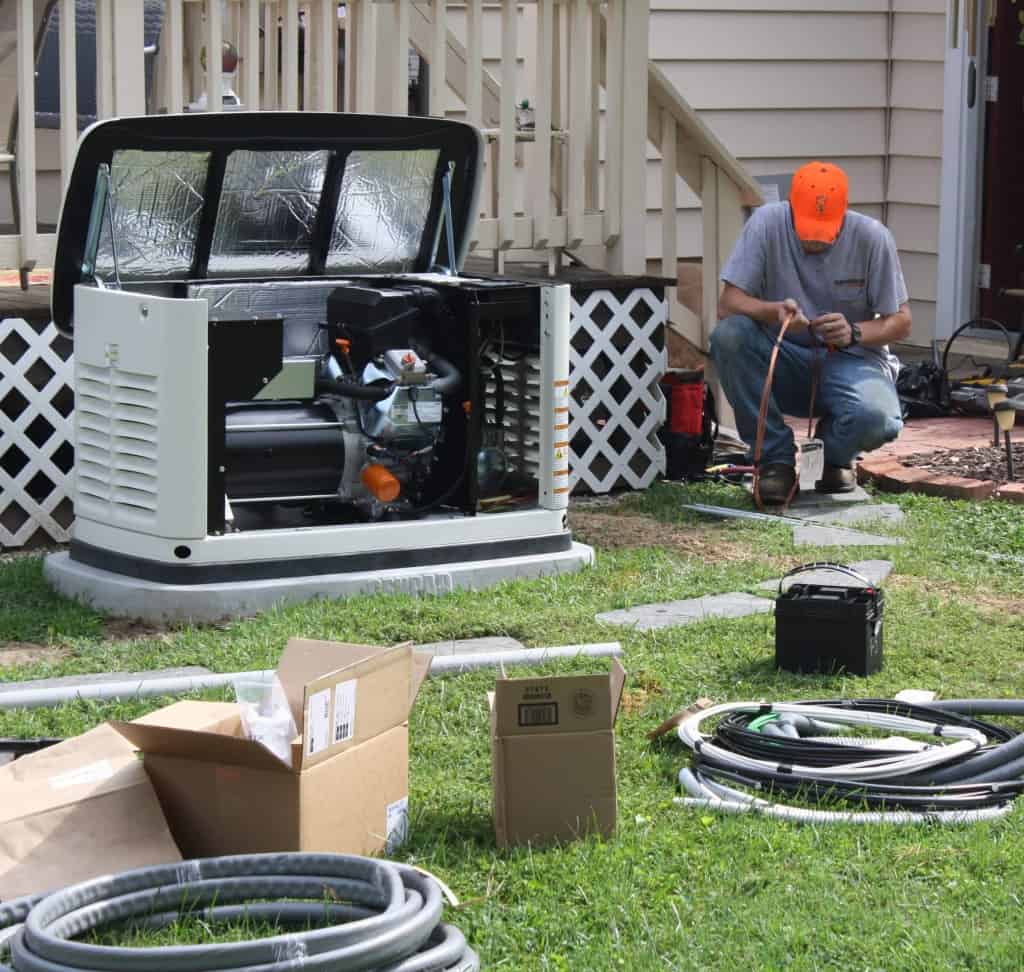How much does it cost to install a 22kW Generac generator? That’s the question we will focus on in this post. Power outages are especially critical situations where this question may arise for those who aren’t prepared. It is unpredictably difficult to determine when a power outage will strike. Your family’s routine can be disrupted by a power outage, and your home’s comfort can be affected as well, regardless of how long it lasts. Ensure that your family is prepared for the next unexpected power outage by installing a Generac whole home backup generator.
The Linquip website has a lot of information about standby generators. In any situation where a standby generator is needed, we can help you find the right one. Find out what Linquip can offer when it comes to these industrial devices by reading Linquip’s article “What is Standby Generator? Working Principle and Function“.
Do you have any experience working with them? We offer a wide selection of Standby Generator Products at Linquip so that you can find the generator that meets your needs. In regards to your standby generator, do you need any special services? Would you like to get a guide to your standby generator if you have any problems with your device? By using the Linquip platform, you can access all Standby Generator Service Providers for FREE. If you would like to know the cost of a standby generator, you can request a free quotation from all the Standby Generator Suppliers and Companies through the Linquip platform.
A Generac generator that generates 7 to 24 kW will cost between $2,000 and $5,000, plus installation costs of about $3,000 to $5,000.
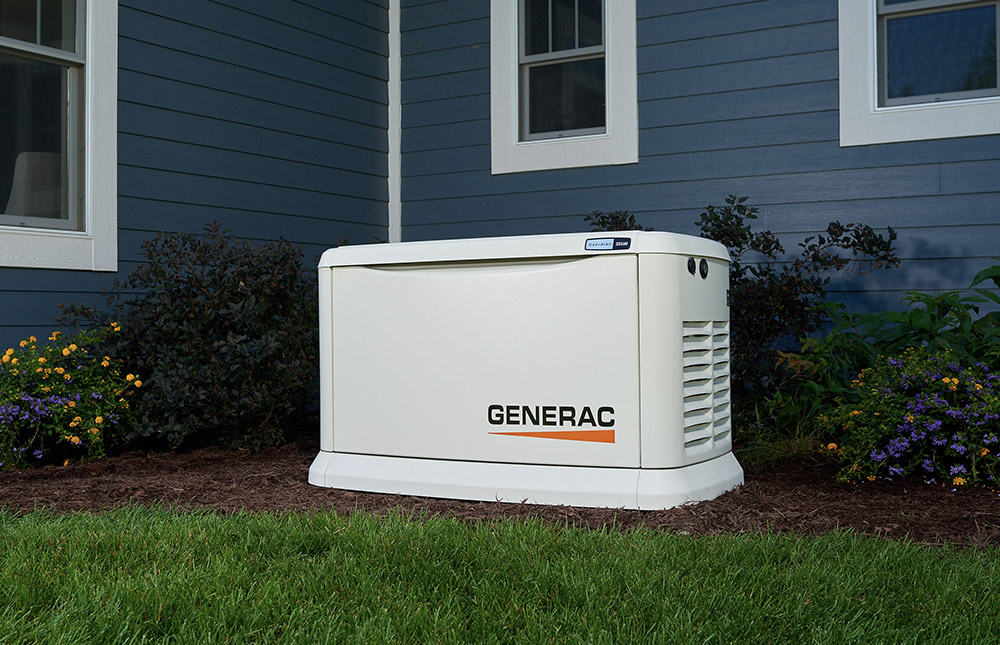
How did we Manage to Write this Post?
Our team has years of experience working with various types of generators. So, we gathered the data for this post based on both experience of our team and evaluating more than 10 various sources. We hope this article helps you make an informed decision on the budget you need when you want to Install a 22kW Generac Generator.
A Brief Overview of Backup Generator
It is common for power to be cut off during extreme weather conditions. There is a problem here, especially in areas with extremely high or extremely low temperatures. For example, the high temperatures in your area could increase your risk of heat exhaustion if your air conditioner is not running. A heating system can help you avoid inconveniences if your region experiences harsh winter weather.
Many people are motivated to take proactive actions to avoid power outages caused by tornadoes, hurricanes, tropical storms, fires, snow, and ice storms that have disrupted power to thousands of homes in the past and present.
When an electrical power outage occurs in the house, a whole house generator automatically turns on via a transfer switch. During this time, the generator supplies power to the circuits of the house by the generator pending the restoration of regular power. The whole house generator works even when you’re away, so it doesn’t require you to be there to use it.
An Introduction to Generac Generators
Permanently installed Generac generators provide automatic backup power. When there is an outage, power will be automatically delivered. In case you choose, you can back up the entire house. They are also the brand that homeowners prefer when it comes to purchasing backup power for their homes. The system will continue running until utility power is restored – whether that takes two hours or two weeks.
Similar to your central air conditioning unit, this equipment resides outside your home. Your home’s electrical system receives power directly from the generator, which is powered by either natural gas or liquid propane. As a result, either your entire home or only the most essential systems are protected during a power outage. When you own a Generac home backup generator, you won’t have to worry about starting or stopping it outdoors. You can leave your Generac home backup generator running while you are away.
A Generac home backup generator runs on the LP fuel or natural gas supply in your home, which means that you don’t have to worry about refueling the generator every time you need to use it. In summary, this generator simplifies and streamlines the process.
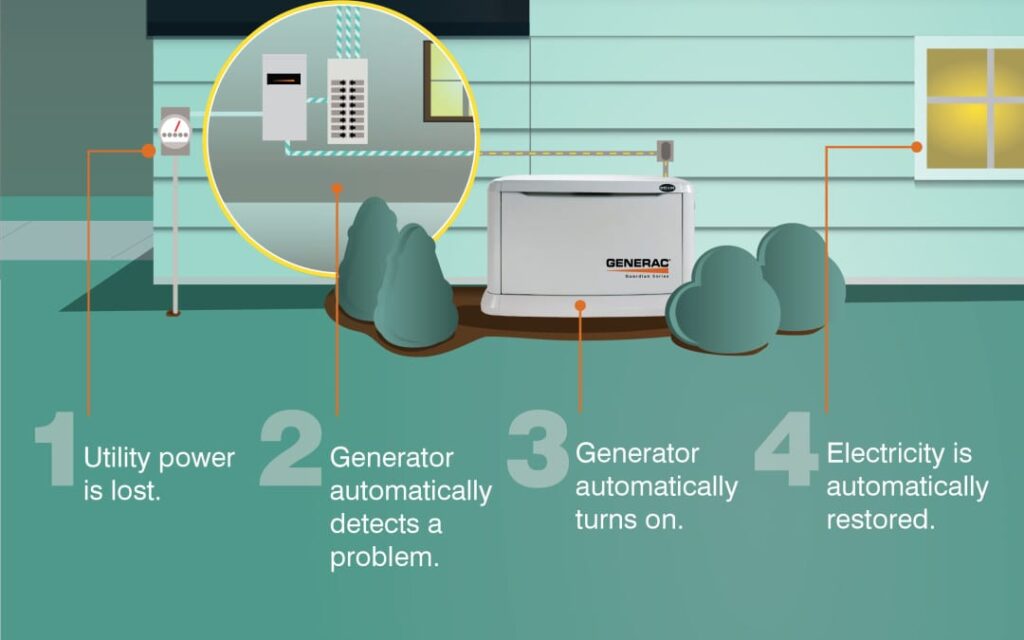
22kW Generator
Whole-home generators from Generac are among the most popular in the industry. It is enough to power a three-to-four thousand square foot house with a 22 kW generator. During the same time, HVAC equipment and washers or ovens will operate. You can extend the generator’s running time by selectively using appliances while it is working to maximize propane’s efficiency. If you wish to power more of your house’s electrical systems, you can install a larger generator.
Installation Cost of a 22kW Generac Generator
Because homeowners’ needs vary widely, the cost of installing a Generac generator also varies. You should consider important factors first when determining a reliable price range. Generac 22kW generator installation costs are summarized in the table below. Following that, we will discuss the most important factors to consider when determining the price of a Generac generator.
| Item | Cost |
| 22kW-Generac generator | Starting at $6300 |
| Labor and materials | $1,500 and $5,000 |
Generac generator prices and installations cost an average of $5,500 but can vary from $3,500 to $15,000 and more. Due to the wide range, we recommend contacting an electrician to get an accurate estimate.
The cost of your generator installation will, however, be determined by the following factors:
- Size & Power Output
- Power Needs
- Power Source
- Electrical Upgrades or Modifications
- Permits
- Installation
- Maintenance
Size & Power Output
Generator kilowatt capacity reflects the amount of power wattage it can generate. To meet your needs, you should only consider Generac generators that are the right size or capacity.
The output of a small generator usually ranges from 7,000 or 7kW to 10kW. In the event of a power outage, these units are ideal for running a few electrical appliances in your home. It is possible to purchase a midsized generator delivering between 12,000 (12kW) and 20,000 (20kW) kilowatts. As long as your home doesn’t need to be completely powered up, mid-sized units are ideal for heating and air conditioning. You’ll be able to use it for powering a 2,500-square-foot house or smaller.
The power of large generators ranges from 22,000 (22 kW) to 45,000 (45 kW). Generac generators are your best option if you need to power your entire home. This capacity allows you to run your central air conditioner and heating system, as well as lighting, appliances, and medical equipment. The best way to protect your home if it is over 2,500 square feet is with a whole-house generator. A partial connection, however, is also an option.
Power Needs
Having a Generac generator installed requires consideration of the following circuits:
- The blower fan on a gas heater
- Home security system
- Lighting and electrical outlets (downstairs)
- Air conditioning (downstairs)
- Device for opening and closing garage doors.
- Appliance outlets in the kitchen include dishwashers, refrigerators, microwaves, and ovens.
- Equipment for the laundry room
Identifying Your Particular Needs
It can be challenging to figure out how many kilowatts your daily-use appliances require. If you have a power statement, you can use this as a guide, but remember that some devices consume more power than others. Consult a licensed generator installation company to ensure you get the right kilowatt estimate. Having accurate sizing will help you avoid making costly mistakes.
Give your generator installation company the information they need to determine how much wattage you will need, including the type, number, and wattage of electrical appliances you will need during a power outage. Having this information on hand means the generator expert you consult can give you an accurate estimate. As well, it is advisable not to install a standby generator yourself. To avoid injuries, only a trained expert should perform this.
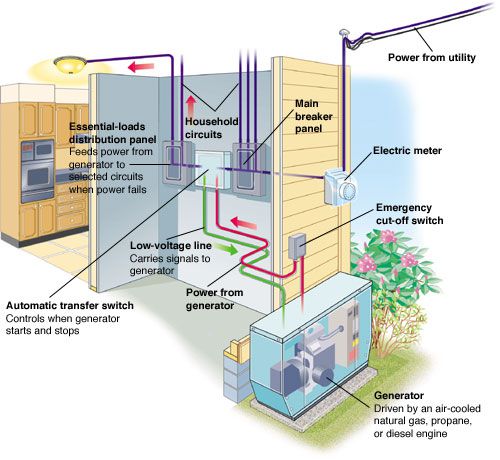
Power Source
It’s important to consider the power source the generator will run on when you’re shopping for a home generator. Gasoline generators, for example, require a budget for fuel and storage. It is also possible to use liquid propane, diesel, or even solar energy as a fuel type.
Natural Gas
The cost of a natural gas generator for a home ranges from $2,000 to $21,000. Due to the piped nature of natural gas, portable options aren’t available. Since they can be connected to the utility grid, they do not require fuel storage. Typically, they can be converted to propane easily and work exceptionally well in cold climates.
Liquid Propane
The average cost of a propane generator for a home model ranges from $2,000 to $21,000, while a portable model costs between $600 and $2,600. In rural areas and off-the-grid areas without gas lines, they’re a popular option. A large number of natural gas models can also be converted to operate on propane quickly and easily. The shelf life of liquid propane is indefinite when stored correctly, and the fuel burns cleanly.
Diesel
The cost of diesel generators ranges from $3,000 to $20,000. Compared to natural gas or gasoline generators, these large units are more efficient. Diesel models are more beneficial as power requirements increase. However, high fuel costs and diesel gelling in cold climates will be a concern.
Gasoline
For a cost of $500 to $3,000, gasoline generators offer the best value. Most gasoline-powered generators are small and portable. Many regions have easy access to gas, making this a popular choice. The high cost of gas can, however, make it less economical.
Solar
For most homes, solar generators cost between $2,000 and $25,000. Whole-home units cost at least $10,000. The sustainability of solar backup systems is one of their significant advantages. Fuel is not required constantly for these. There is, however, a limitation to how much energy small units can store. In areas with higher cloud coverage, they also cannot produce when there is no sun. The good news is that these units don’t cost anything to fuel, and as a result, they are often financially viable when used regularly to power a home.
Battery Backup
Batteries for whole-home backups cost between $10,000 and $25,000. There are smaller backup batteries available for critical components for as little as $2,000. Depending on the level of installation, the cost can range from $800 to $1500. Overall, it is one of the most cost-effective backup options, depending on whether you are pulling from the grid or a solar array.
Almost all battery backup systems can be powered by solar panels, but many do not. The majority of them can be connected directly to your home’s power supply and charged on the grid, storing power in case of an emergency. Smaller batteries can be turned on during peak times to reduce your electricity bill.
Electrical Upgrades or Modifications
The cost of an electrical subpanel can range from $530 to $2,000, but it isn’t necessary to upgrade them all the time. An average circuit add-on costs $500-$1000. To bury a line, you will also need to dig a trench.
It is possible to make your generator run more efficiently by enhancing it. You may want to consider the following options:
- You can monitor the generator status even when you are away from home with a wireless monitor, which costs between $200 and $400.
- Smart load manager costs between $150 and $300 and allows power to be switched between different zones.
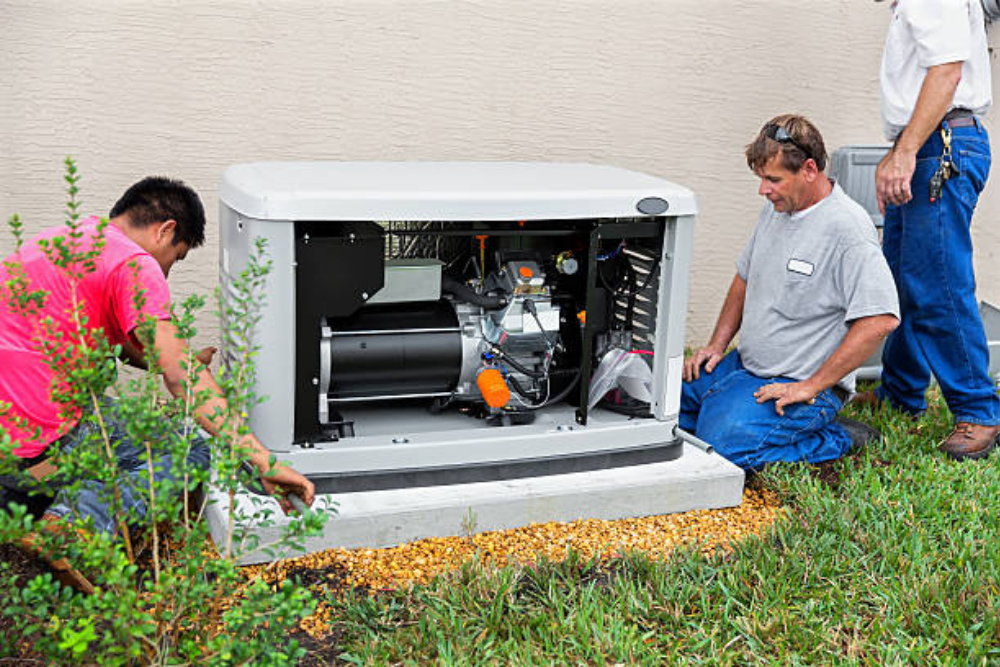
Permits
The cost of a permit ranges from $50 to $200. The actual cost will depend on what you are installing and what the local pricing is. To upgrade the electrical wiring and install plumbing in a fuel tank or line, you will most likely need to obtain a permit.
Installation
The cost of installing a permanent home generator is $1,500 based on labor and materials. In most cases, installation fees are based on a project-by-project basis. Nevertheless, some contractors charge based on individual factors, including the following.
- Energy needs assessment: Usually free of charge with the installation
- Constructing the concrete pad and preparing the site: $50–$75 per square foot
- Fuel tank installation or utility line connection: $50-100 per hour
- Adding new wiring, upgrading the electrical panel, and improving the transfer switch: $65 to $85 per hour
- Material and equipment costs: $300-$2,000
Maintenance
In general, generator maintenance costs between $80 and $300 per year. You should inspect your generator regularly before the summer and winter (the seasons when you’re most likely to lose power) to find any issues before they get worse.
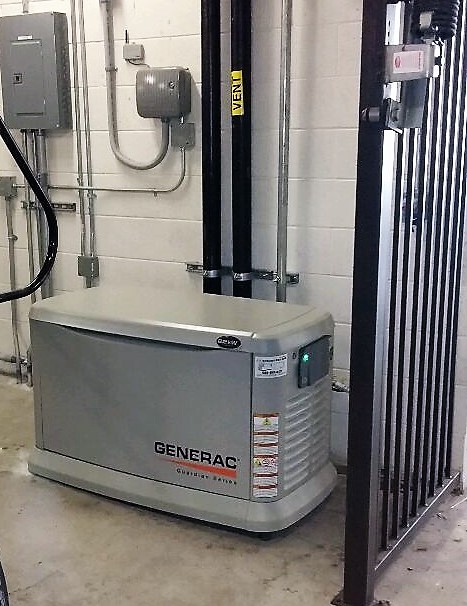
Considerations Regarding Generac Generators
- Following the kW calculation, you can proceed to install the standby generator. Among the costs associated with a Generac generator installation are:
- Installation requirements and equipment choice
- Locating the nearest electrical meter and power panel and preparing the site for installation.
- Sub-panel installation with the option of the automatic power transfer switch. As soon as power is cut off from the grid, this automatically starts the generator.
- An outline of the plan and a list of devices and appliances that will be affected during a power outage. It is common for power outages to cause energy surges. If you want to protect your home, you must identify which electrical devices and appliances must be unplugged before you can turn on the generator. This concern will be addressed by your installer. The most commonly affected devices are computers and televisions.
- Providing a proper flat area and a pouring area that is adequately sized.
- Fuel tank installation for generator
- Following code regulations while installing wiring and lighting. The cost of an installation is calculated based on a per-hour or per-square footage basis by an installation company.
What Is the Propane Consumption of a 22kW Generac Generator Per Hour?
There are approximately 3.4 gallons of fuel burned per hour by a 22kw generator. These numbers assume the generator is running at its full capacity. The generator may not necessarily run at full capacity throughout your power outage.
What Is the Natural Gas Usage Per Hour of a 22kW Generac Generator?
A 22-kilowatt generator would consume 2.1 gallons of gas per hour at half load and 3.6 gallons of gas per hour at full load, according to Generac.
Does a Generac Whole House Generator Have a Continuous Run Time?
You can choose from 24-hour, 48-hour, or 72-hour tanks. Keep an eye on the generator’s oil consumption to ensure it doesn’t run out. If you are using it long-term, every 24 hours, you should shut down your generator, let it cool down, and add oil if necessary.
Download 22kW Generac Generator Installation Cost PDF
Keeping this article as a PDF can make it easier to read and refer to in the future. This file has been prepared for you. Downloading can be started by clicking on the following link.
Watch Videos about How Much Does It Cost to Install a 22kW Generac Generator?
For more information about How Much It Costs to Install a 22kW Generac Generator, watch the following video.
Buy Equipment or Ask for a Service
By using Linquip RFQ Service, you can expect to receive quotations from various suppliers across multiple industries and regions.
Click Here to Request a Quotation From Suppliers and Service Providers
Read More on Linquip
- Diesel Generator Services
- Diesel Generator Maintenance
- Diesel Generator Repair Services
- Diesel Generator Services in Texas
- Diesel Generator Maintenance Services in Texas
- Diesel Generator Installation Services in Texas
- What is Generator Efficiency? Calculation & Formula Guide
- What is the Right Size Generator for a 50 Amp RV? A Complete Guide
- Generator Maintenance: The Most Essential Tips to Know
- Types of Generators: Learn the Basics, Get the Most Out f it!
- Concise Guide to Generator Transfer Switch Installation Cost
- Can I install a Standby Generator Myself? (An All-In-One Guide)
- Gasoline Generator Repair and Maintenance
- The 5 Best Gasoline Generator
- DC Generator Repair, Maintenance & Testing (Clear Guide)
- How Much Does It Cost to Install a 22kW Generac Generator?
- How Long Can A Standby Generator Run Continuously? A Comprehensive Guide
- Electric Generator Maintenance, Repair and Services
- Pros and Cons of Inverter Generators
- The 5 Best Propane Generators
- The 9 Best RV Generators (Clear Guide)
- The 10 Best Ozone Generators (Ultimate Guide)
- The 3 Best Portable Power Station Generators +Pros & Cons
- The 10 Best Dual Fuel Generators (Clear Guide)
- The 10 Best Quiet GeneratorsThe 7 Best Whole House Generators
- The 7 Best Steam Generators
- The 10 Best Inverter Generators + Review
- More Details about Siemens Generators
- More Information about Siemens Generators Services
- Read More Information about Siemens Generator Installation Services
- Read More Details about Siemens Generator Maintenance Services
- More Information about General Electric (GE) Generators
- More Information about GE Generator Services
- More Details about GE Generator Installation Services
- More Details about GE Generator Maintenance Service
- What is Alstom Generators? (Clear Guide)

